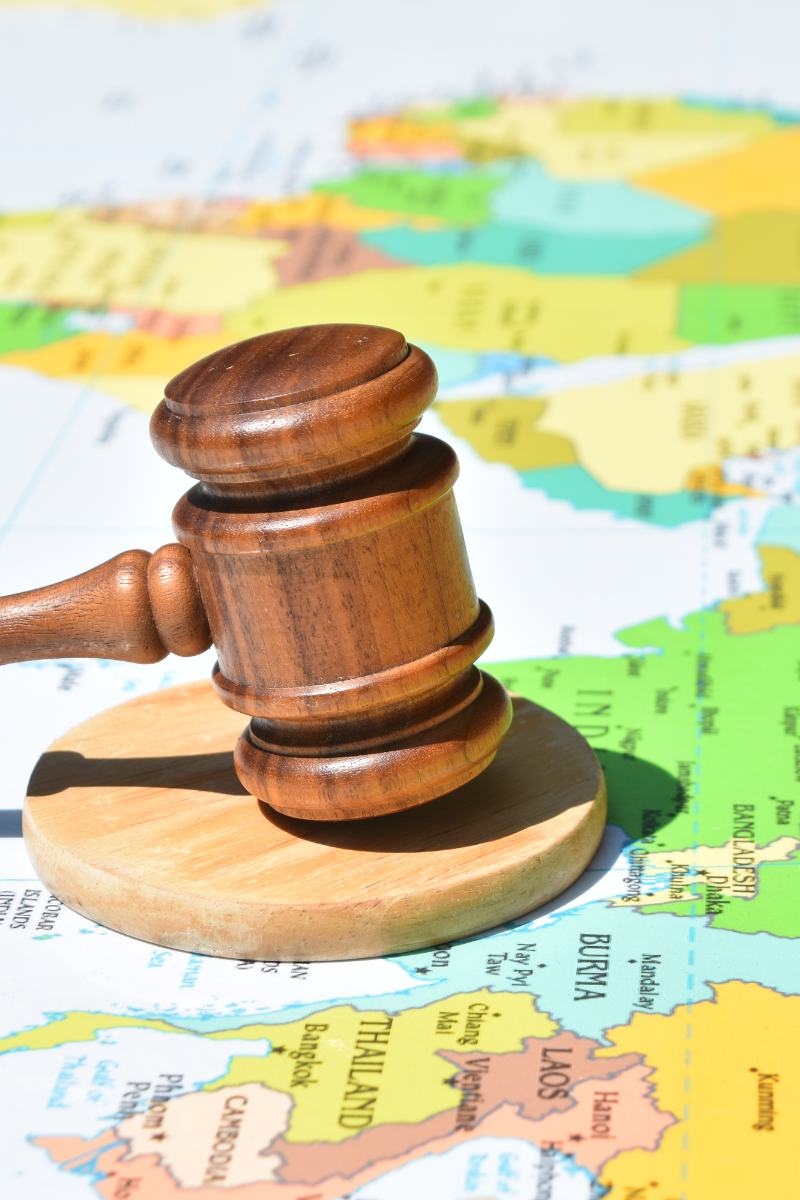Parental Child Abduction: What Parents Need to Know About NCMEC’s Changes
Parental child abduction is a deeply distressing reality that affects thousands of families across the United States each year. For parents searching for missing children, the National Center for Missing & Exploited Children (NCMEC) has long been a critical resource, offering support, advocacy, and connections to law enforcement.
Recent changes have raised concerns among parents and legal professionals. The federal government has ordered NCMEC to remove references to LGBTQ+ resources from its website or risk losing funding. This decision has sparked conversations about its broader impact—especially for families navigating international parental child abduction cases under the Hague Convention.
If you’re a parent facing the unthinkable, understanding how these changes could affect your legal options and the overall landscape of child recovery in 2025 is essential. Here’s what you need to know.
 Understanding the NCMEC
Understanding the NCMEC
Founded in 1984, NCMEC is a non-profit organization that works in collaboration with the U.S. Department of Justice, law enforcement agencies, and global partners to assist in cases of missing, exploited, and abducted children. The organization provides:
- Case management support for parents whose children have been abducted domestically or internationally.
- Educational resources for preventing child exploitation and abduction.
- Direct assistance in Hague Convention cases, helping parents reunite with their children when international parental abduction occurs.
- A nationwide clearinghouse for missing children reports to aid law enforcement efforts.
With the government’s recent mandate, NCMEC must remove references to LGBTQ+ resources from its site to maintain federal funding. But what does this mean for the families affected by parental child abduction?
Who Is Affected by This Change?
While the policy change specifically targets references to LGBTQ+ resources, it has wider implications for all parents dealing with international and domestic parental child abduction. Here’s who could be impacted the most.
1. Parents Seeking Help in International Parental Child Abduction Cases
The Hague Convention on the Civil Aspects of International Child Abduction is a treaty that helps parents whose children have been unlawfully taken across international borders. NCMEC has historically been a key resource in these cases, providing:
- Legal guidance on filing Hague Convention petitions.
- Support in working with the U.S. State Department and international authorities.
- Referrals to experienced Hague attorneys who can help navigate the legal process.
If NCMEC’s services or visibility are limited due to funding restrictions, parents may find it more challenging to access critical resources. During these difficult times, working with a trusted Hague Convention attorney can provide the guidance and support needed to help navigate the complexities of parental child abduction cases.
 2. LGBTQ+ Parents and Families
2. LGBTQ+ Parents and Families
NCMEC has removed references to LGBTQ+ resources from its website to comply with Executive Order 14168. This order mandates that federal agencies and their partners recognize only the biological sex assigned at birth. As a result, it eliminates official acknowledgment of transgender and non-binary identities in government-affiliated materials. For LGBTQ+ parents navigating parental abduction cases, this change adds new challenges: legal recognition of parental rights across jurisdictions.
Without clear guidance, LGBTQ+ parents may find it difficult to determine how their rights apply in the jurisdiction where their child was taken. They may also face uncertainty about whether they qualify to file a Hague Convention petition and what legal strategies they can use if their parental status is disputed. Given these complexities, parents must seek experienced legal representation.
At Masters Law Group, our attorneys have extensive experience in Hague Convention proceedings and LGBTQ+ family law. We can help parents navigate international custody disputes, advocate for their parental rights, and work toward the safe return of their children.
3. Parents of Runaway or At-Risk Youth
Children who run away or are abducted are at higher risk of trafficking or exploitation. With certain references and educational materials removed from NCMEC’s public-facing website, some families may find it more difficult to locate support networks that were previously accessible. Acting quickly and seeking professional assistance is crucial for families dealing with these situations. Whether a child has run away or been taken unlawfully, parents should work with experienced legal professionals and advocacy groups to maximize their chances of a safe recovery.
What This Means for Parents Navigating Parental Child Abduction in 2025
The changes to NCMEC’s website and potential limitations in its funding could introduce additional obstacles for parents searching for critical information and resources. Parents must stay proactive and informed about the evolving legal landscape to help ensure they have the right support. Here are some key ways these developments may impact parents dealing with parental child abduction in 2025:
1. Access to Information Could Be Limited
One immediate effect of this policy is that parents searching for information on parental child abduction, missing children, or related topics might not find the same level of detail previously available on NCMEC’s website. If key pages, guidance, or referral links are removed, parents may need to seek help from legal professionals directly. Here’s what you can do:
- Consult a Hague Convention attorney as soon as possible if you suspect international parental abduction.
- Use alternative legal resources such as the U.S. State Department’s Office of Children’s Issues and family law firms experienced in international custody disputes.
2. Changes in Federal Support Could Impact Parental Abduction Cases
Since the government partly funds NCMEC, any reduction in support could affect the overall infrastructure of missing child cases. This could mean:
- Slower response times in Hague Convention abduction cases.
- Reduced outreach and awareness programs for parents.
- Challenges in collaboration between NCMEC and law enforcement agencies.
Stay informed about available resources through legal professionals and child advocacy groups. Help ensure you document everything in your case—including communications with law enforcement and legal authorities—to help avoid delays.
3. Legal Representation in Parental Abduction Cases
With changes to NCMEC’s services and accessibility, the role of experienced Hague Convention attorneys becomes even more critical. Parents involved in an international parental child abduction case should seek help immediately. At Masters Law Group, Erin E. Masters and Anthony G. Joseph bring extensive knowledge of The Hague Convention and the International Child Abduction Remedies Act (ICARA). Our firm provides:
- Legal representation for parents fighting to bring their abducted children home.
- Comprehensive guidance on Hague Convention filings and procedures.
- Dedicated advocacy in both international and domestic family law courts.
If you are facing a parental child abduction case, acting swiftly is essential. To learn more about our track record and featured cases, see here.
Get the Legal Support You Need
Parental child abduction cases require swift action and experienced legal guidance. Navigating international custody disputes under the Hague Convention can be overwhelming, especially when dealing with different legal systems and jurisdictions. Having knowledgeable legal representation is essential to protecting your rights and securing your child’s safe return.
At Masters Law Group, we are committed to providing compassionate and effective legal support for parents facing international parental abduction cases. Our team understands the urgency of these situations and is prepared to help advocate for you every step of the way. Your child’s future is too important to leave to chance—let our experienced attorneys fight for you.
Contact us today to schedule a confidential consultation and learn how we can help you navigate the complexities of your case.
Frequently Asked Questions (FAQ)
1. What should I do if my child has been abducted internationally?
If your child has been taken abroad without your consent, you should immediately:
- Contact an experienced Hague Convention attorney.
- File a police report and notify the U.S. State Department’s Office of Children’s Issues.
- Gather all relevant documents, including court orders and communication records, with the other parent.
2. How does the Hague Convention help in parental child abduction cases?
The Hague Convention is an international treaty designed to ensure the prompt return of children wrongfully taken to or retained in another country. It establishes a legal framework for resolving international custody disputes.
3. Can I still access legal assistance through NCMEC?
Recent changes may make some information and resources less visible on their website. Parents should consult legal professionals directly for case-specific guidance.
4. What if my child was abducted to a country that is not part of the Hague Convention?
If your child has been taken to a non-Hague country, legal options become more complex. You will need to work with an attorney with ample experience in international family law to explore diplomatic and legal avenues for child recovery.
















